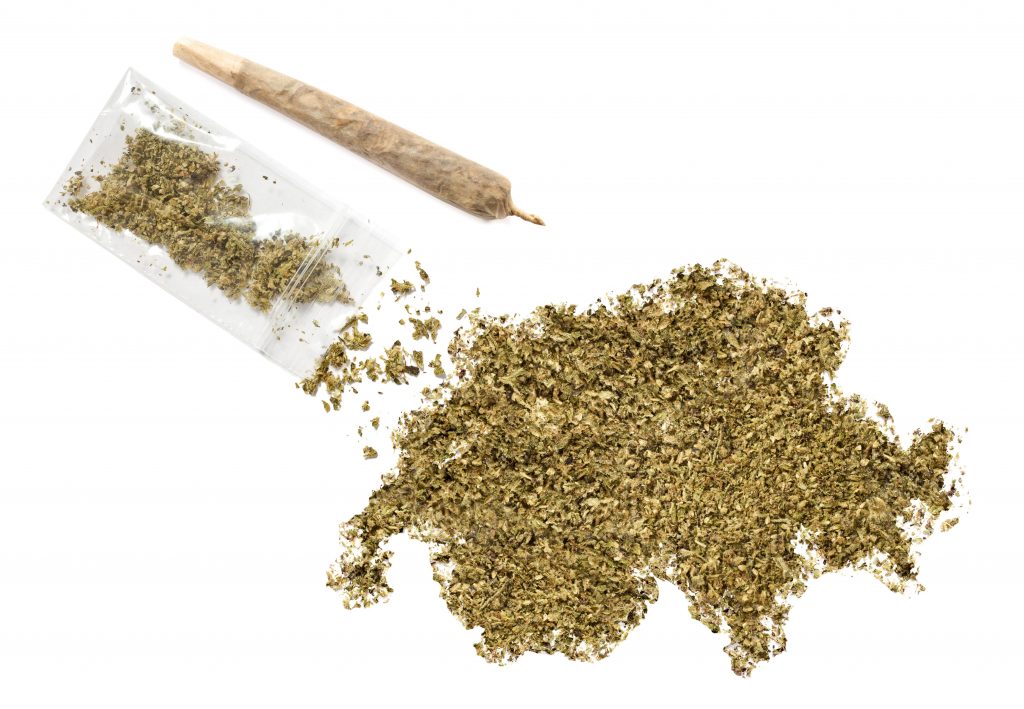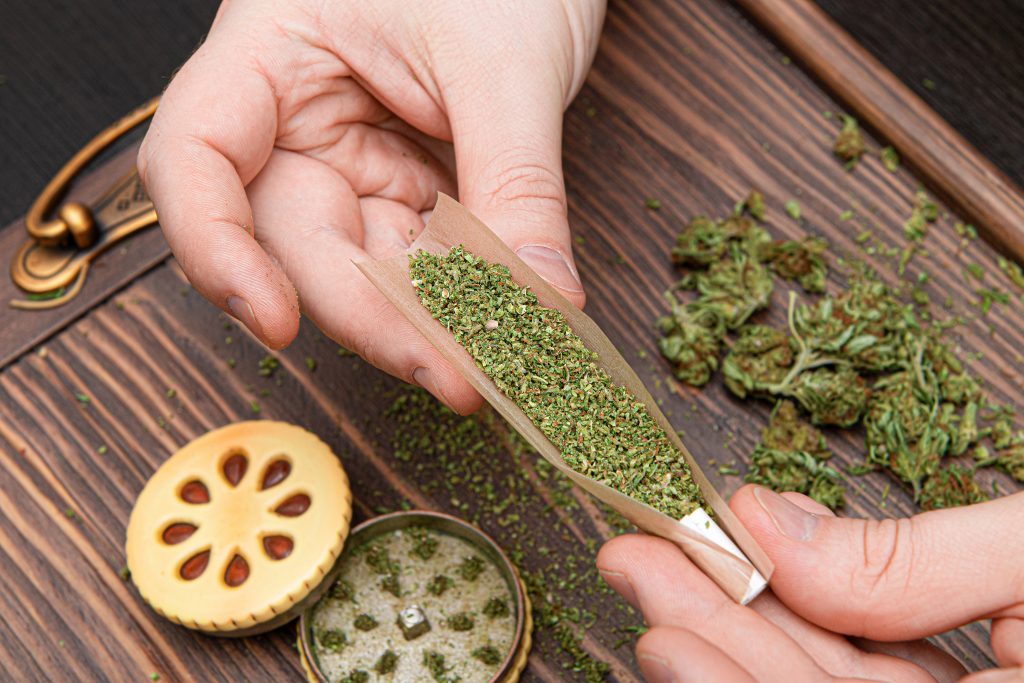Europe might have started out slower than the US, but it’s sure picking up steam now. Malta legalized cultivation and use, with Luxembourg on the way to doing the same, and Germany is still looking to be the first regulated recreational market in the region. Who might steal this designation out from under it? Last fall, Switzerland decided to go ahead with a recreational legalization, and is waiting on a new cannabis bill to regulate the market. If it gets there before Germany, Switzerland will be the first recreational market in Europe.
It might not have gotten a lot of attention, but Switzerland legalized recreational cannabis by way of votes in parliament, and now awaits a formal bill to regulate the industry. We cover all important cannabis-related stories; subscribe to the THC Weekly Newsletter to stay current on what’s going on, and to get access to premium offers on cannabis flowers, vapes, edibles, and more! We’ve also got great deals on cannabinoids, like HHC-O, Delta 8, Delta 9 THC, Delta-10 THC, THCO, THCV, THCP & HHC, which won’t burn a hole in your pocket. Check out our “Best-of” lists to find these deals, and always remember to enjoy responsibly!
What happened?
This is not a breaking news story as it happened several months ago. The real story is technically still to come, but for now we can take a look at where Switzerland stands with recreational cannabis and a promised legalization bill.
On September 14th, 2021, Switzerland’s Social Security and Health Commission, a part of the Council of States (the upper house of the Federal Assembly which is Switzerland’s parliament) decided that cannabis should no longer be prohibited. In a vote with nine out of 11 members voting for legalization, it was decided that cannabis laws should be changed, and that a system of regulation should be instituted. This now leads to the necessity of Switzerland’s parliament to draw up a draft bill.
No specifics were mentioned thus far. All regulation pertaining to cultivation, production, use, and taxation will be a part of the forthcoming bill. There is already a strong base of support, with 40 National Council members (lower house of the Federal Assembly) supporting this initiative. A previous parliamentary commission already came to the same conclusion of setting up a regulated market, which now allows Switzerland to officially lift its ban on cannabis.

At least part of the reason stated for making this decision, is to gain control of the black market in the country. It is believed that a regulated and taxed market, with quality control for safety, is more inviting than a black market. How this thought came to be, is confusing, as literally every regulated market currently open suffers issues in competing with local black markets. Perhaps Switzerland has an idea for a system whereby prices are not inflated for the sake of collecting taxes. I guess we’ll see.
While this vote seems to have determined a change in law (as in, Switzerland is definitely to become a legalized country), it’s not a complete picture just yet. Remember how long Mexicans have been waiting for their bill despite an actual Supreme Court ruling technically ending prohibition? This vote in Switzerland for a recreational cannabis bill is exactly that, a vote to create a bill. And creating a bill takes time. In order to become official law, a bill must be drafted, and then passed by both houses of parliament. So, just like Mexico, a decision has been made, but in order for it to be instituted, a written law must be created and approved.
Current cannabis laws in Switzerland
This decision to legalize cannabis is part of a trajectory that Switzerland has been on for the last few years. However, despite changing opinions, the laws in Switzerland are still intact at the moment, and will be until the law is officially changed by way of the adoption of new policy. Unlike with Mexico, since no Supreme Court ruling is attached, there is nothing preventing the judicial system from finding a person guilty of the still-in-place laws.
Cannabis is currently illegal in Switzerland, though small amounts were decriminalized in 2012, with only a fine given of 100 Swiss Francs, and no jail time. This means up to 10 grams is a non-prison offense. Switzerland is not a part of the EU, and therefore not required to follow EU regulation, which right now stipulates that cannabis above .3% THC is illegal. Switzerland instead allows up to 1% THC. Having cannabis with over this amount of THC is subject to a fine and jail time of up to three years. Since 2017, low-THC weed has been sold all over the country.
Starting in 2012, selling cannabis, as well as possessing an amount large enough to affect a group of people, was punishable by 1-3 years in prison, and a possible fine. However, in 2017 it was decided that giving a fine just for possession is wrong, and that only consuming it can be fined. This in turn led to many states dropping prosecutions for possession of small amounts.
Also in 2012, the ability was given to grow low-THC hemp in certain cities, so long as the THC level was under 1%. However, only months after this went into effect, the government invalidated the agreement, by saying it violated federal drug laws. Different penalties can be imposed in different states in Switzerland, for different drug violations.

What about medical?
Switzerland does not have a comprehensive medical program, but this doesn’t mean the country doesn’t allow cannabis medicine at all. Since an update to the Federal Act on Narcotics and Psychotropic Substances in 2008, which began being used in 2011, Swiss doctors have the ability to obtain special permits to prescribe medical marijuana to patients with serious illnesses, or who are terminal, for 12 months at a time. This is done in the form of tinctures and oil exclusively. However, only two pharmacies in the country are able to give out such medications.
While flowers and resins cannot be dispensed for medical purposes, the pharma medication Epidiolex, a synthetic form of CBD, was approved in 2018. Since that time, pharmacies have been permitted to make and sell CBD formulations specific to patients.
The qualifications for obtaining cannabis for a medical issue seem to be quite high, with only the most severe issues being offered this treatment. With a recreational legalization, cannabis will be more available to those with minor medical issues that could still benefit from the plant as medicine.
Pilot study trials
In 2020, the Swiss government approved a pilot study to assess whether there was a need for an update in cannabis regulation. This pilot program was set up to allow the legal production and recreational use of cannabis, with all cannabis used in the program coming from Switzerland, and grown organically.
The program was initially approved by the Swiss government as an amendment to the Federal Act on Narcotics and Psychotropic Substances, and it became official on May 15th of last year. Only certain cities are participating in the program, and the program sets up regulations for growing and harvesting the cannabis used for it; setting the guideline of a 20% THC limit, while also instituting regulation for pesticide limits, and warning labels.
For the program, each participant is limited to 10 grams of THC monthly, and no more. The program also comes with the stipulation that participants must inform schools – if they are associated with one in any way – if they are in the program. Which realistically could cause problems for some participants.

The program was meant to run for 10 years, which is obviously unrealistic in today’s climate of cannabis acceptance. Let’s be honest, in 10 years from now, there aren’t likely to be many countries with prohibition policies still intact. Perhaps this is why parliament instituted the recent votes, rather than waiting for a 10-year trial to pass to change laws.
This is an expected outcome, and could make Switzerland the first European country (EU or not) to institute a regulated system for recreational cannabis. Of course, bills can take time to pass, so Germany, or another interested country, still has time to get in there first. Apparently the pilot study must have been going super well to get the country to take off over nine years of study time, before making a decision. That, or it became clear to the governance that if Switzerland waited ten years, it would be the last to legalize altogether.
Unlike Malta, which last year legalized recreational cultivation and use, and Georgia, which legalized only use in 2018 via a Supreme Court ruling (like Mexico), it sounds like Switzerland is looking to do the whole thing, which would make it the first in the region to do so. While Malta and Georgia might expand their laws to include regulated sales markets, this is currently absent from both those countries’ policies.
Conclusion
The difference between a decision being made, and a law being written and approved, is a pretty wide gap, and there’s no telling at the moment if the current decision will be redacted before a bill gets out. As the general trajectory is moving forward, it does seem likely that a bill will be written and approved soon. Much like Mexico, we’ll have to wait and see how it pans out in the end. For now, Switzerland has technically made the decision to legalize recreational cannabis, and its just a matter of the laws being officially written. Good job Switzerland!
Welcome all! Thanks for joining us at CBDtesters.co, the preeminent internet source for the most comprehensive independent news covering the cannabis and psychedelics markets. Read thru the site frequently to stay up-to-date on the exciting world of cannabis and psychedelics, and check out The THC Weekly Newsletter, to stay informed on everything going on.
Disclaimer: Hi, I’m a researcher and writer. I’m not a doctor, lawyer, or businessperson. All information in my articles is sourced and referenced, and all opinions stated are mine. I am not giving anyone advice, and though I am more than happy to discuss topics, should someone have a further question or concern, they should seek guidance from a relevant professional.









